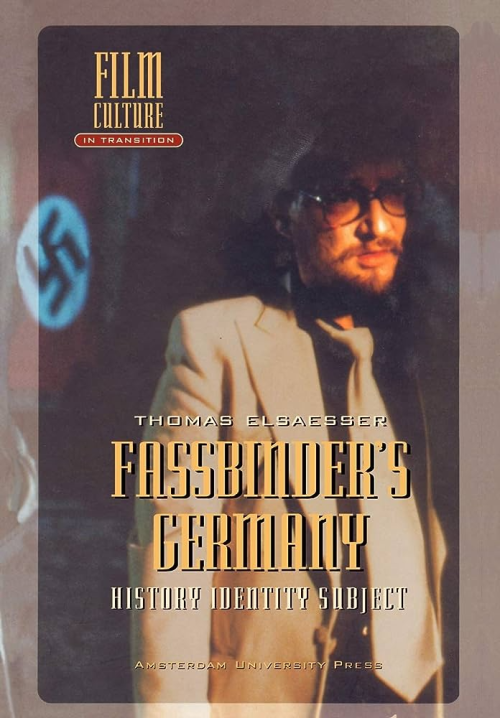Rainer Werner Fassbinder is one of the most prominent and important authors of post-war European cinema. Thomas Elsaesser is the first to write a thoroughly analytical study of his work. He stresses the importance of a closer understanding of Fassbinder's career through a re-reading of his films as textual entities.
Contents
1. Fassbinder Representing Germany
Thomas Elsaesser
2. From Vicious Circles to Double Binds: Impossible Demands in the Field of Vision
Thomas Elsaesser
3. Murder, Merger, Suicide The Politics of Despair
Thomas Elsaesser
4. The BRD Trilogy, Or: History, the Love Story? The Marriage of Maria Braun, Lola and Veronika Voss
Thomas Elsaesser
5. Fassbinder, Reflections of Fascism and the European Cinema
Thomas Elsaesser
6. …Wie Einst? Lili Marleen
Thomas Elsaesser
7. Frankfurt, Germans and Jews: The City, Garbage and Death
Thomas Elsaesser
8. Beyond ‘Schuld’ and ‘Schulden’: In a Year of Thirteen Moons
Thomas Elsaesser
9. Franz Biberkopf’s/Ex-changes: Berlin Alexanderplatz
Thomas Elsaesser
10. Historicising the Subject a Body of Work
Thomas Elsaesser
Appendix One: A Commented Filmography: The House That Rainer Built
Thomas Elsaesser
Appendix Two: Fassbinder's Germany 1945–1982: A Chronology
Thomas Elsaesser
Appendix Three: Bibliography
Thomas Elsaesser
